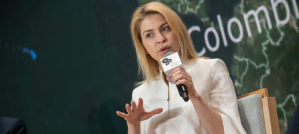Yalta European Strategy held online conversation on “Doom: The Politics of Catastrophe” by Niall Ferguson
Yalta European Strategy (YES) in partnership with the Victor Pinchuk Foundation continues its series of online conversations on global challenges and what they mean for Ukraine. The yesterday’s YES conversation was based on Niall Ferguson’s book “Doom: The Politics of Catastrophe”.
The speakers looked at the theory of disaster and discussed what needs to be changed for us to avoid the doom of decline. With this discussion, YES wants to contribute to drawing strategic lessons from the Covid-19 pandemic globally and for Ukraine.
During the event, Fareed Zakaria, host, Fareed Zakaria GPS, CNN, spoke with Niall Ferguson, Senior Fellow, Hoover Institution, Stanford University. Victor Pinchuk, the founder of YES, Victor Pinchuk Foundation, EastOne group, opened the conversation.
In his introductory remarks, Victor Pinchuk said: “We founded YES in 2004 so that great people could meet in Ukraine to discuss the toughest, most important questions for Europe and the world. I really hope that we will meet in Ukraine together again, but now we bring our friends together online. Today two of the smartest people I know discuss one of the most important and toughest questions I know.”
“The first reports which started in Wuhan just rang a bell with me precisely because they were so understated and the Chinese authorities were at pains to deny that there was human-to-human spread. And I just had a hunch that this was probably a lie,” Niall Ferguson said on how he realized that the world was at the very beginning of the pandemic.
Discussing the course of the pandemic and the possible new waves, Mr Ferguson said that “it may feel like the pandemic is coming to an end” in the United States and the UK, but “it's not over in India, it's not over in Africa, it's not over in South America. (…) Those waves will come in different sizes, different times and different places”.
Speaking about the economic consequences of the pandemic, he said that “a striking picture of 2020 is not actually the excess mortality but the economic shock that we inflicted on ourselves through the lockdowns that really is one of the huge economic shocks in history”.
As for Ukraine, Mr Ferguson said that it has had more disasters in history than almost any other country in the world, noting in particular the disaster experience that Ukraine had under Stalin in the 1930s, Chernobyl, and war in eastern Ukraine. “So, Ukraine has been in my mind a good deal when I’ve been writing this book,” he said.
Answering a question about Ukraine’s future after the pandemic, Mr Ferguson said that it would remain “not quite in Europe, not in NATO, vulnerable to Russian pressure, without anybody having a good idea how you actually get back to the pre-2014 situation”.
Mr Ferguson said that Ukraine has a set of distinctive post-Soviet problems, with corruption being the most obvious one. Thus, he suggested that rather than rehashing some of the arguments of the past, Ukraine should try to learn from the experience of Asian countries that did a great job last year. “I think all governments in the West, and I include Ukraine in this, need to look at the examples of Taiwan and South Korea and think how we can use technology to make our governments more responsive, more accountable to their citizens and how we can make our response to all kinds of disaster much quicker and better targeted.”
The YES Annual Meeting 2020 was postponed due to the COVID-19 pandemic. YES and the Victor Pinchuk Foundation remain committed to integrating Ukraine with the world and put the country on the international agenda. Since 2004, Yalta European Strategy has been the main non-governmental platform for connecting the world and Ukraine. The YES Annual Meetings have brought together world political, business and thought leaders to discuss Ukraine’s future and pressing global challenges.
Starting from May 20 the video of the event will be available at link.
←Back to news list

